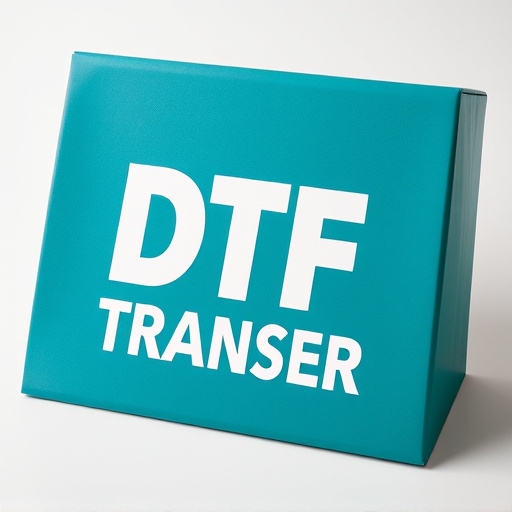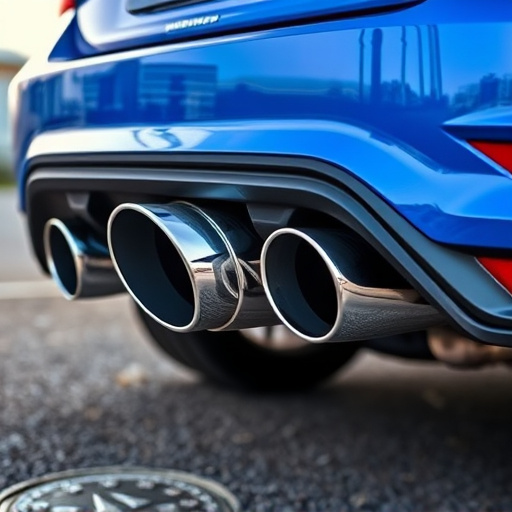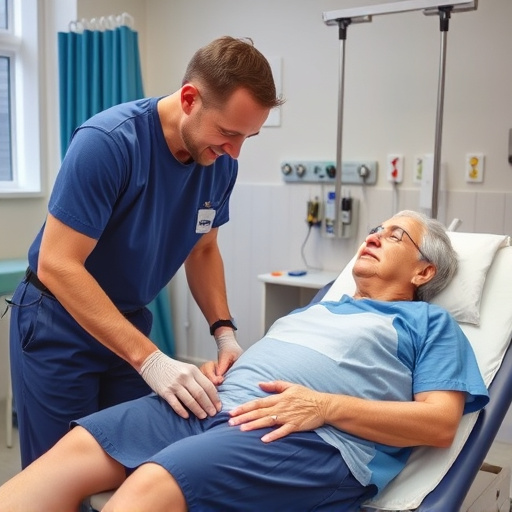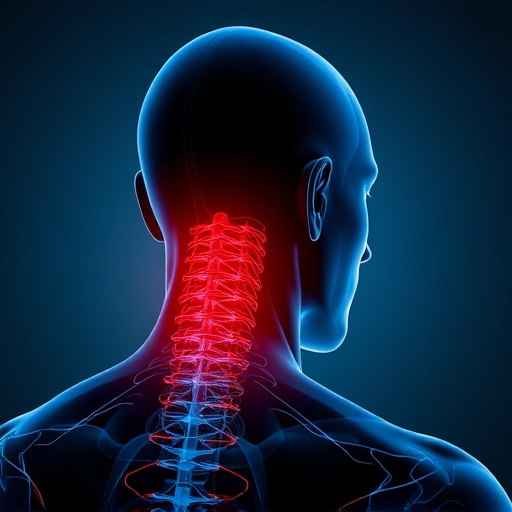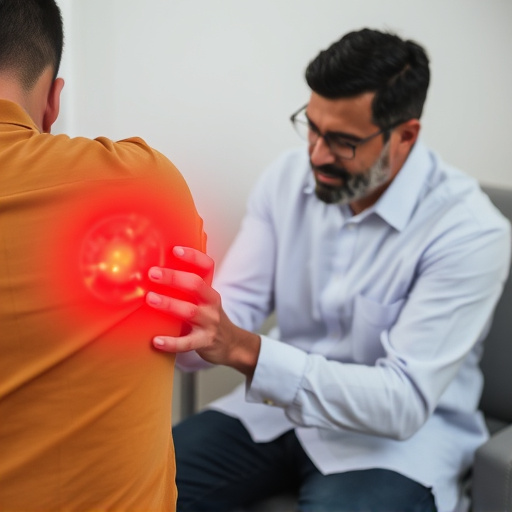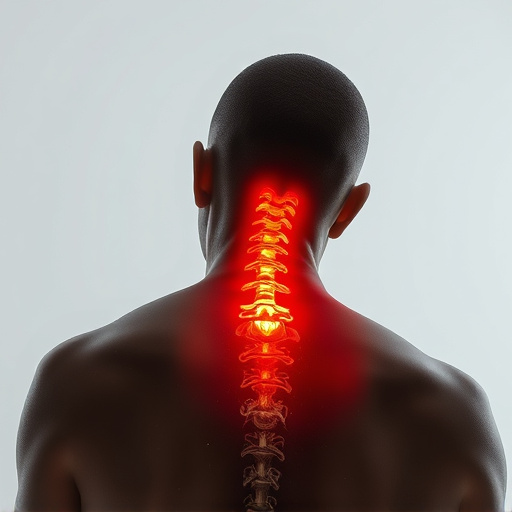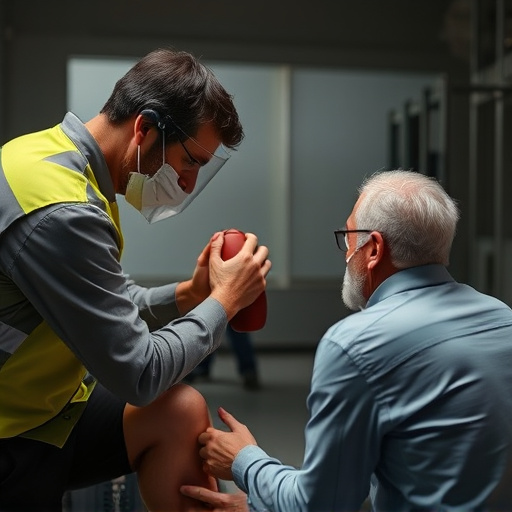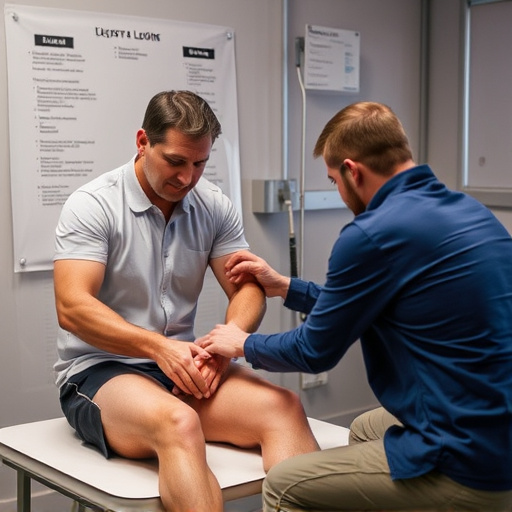Motor vehicle accident care emphasizes physical therapy as a key component for comprehensive injury rehabilitation. Specialized therapists assess and treat diverse conditions, designing personalized plans with manual therapy, exercises, and education to restore mobility, reduce pain, and aid patients in regaining independence faster than chiropractic adjustments alone. Early intervention through physical therapy prevents long-term complications, enabling quicker returns to daily activities.
Physical therapy plays a pivotal role in the recovery process after motor vehicle accidents, offering specialized care tailored to address the unique physical challenges presented by such incidents. This article delves into the comprehensive services provided by physical therapists, focusing on understanding post-accident injuries, assessment techniques, and the transformative power of early intervention. By exploring these key aspects, we highlight physical therapy’s indispensable contribution to motor vehicle accident care and long-term patient outcomes.
- Understanding Physical Therapy After Motor Vehicle Accidents
- Assessment and Treatment Techniques for Injury Rehabilitation
- The Impact of Early Intervention on Long-Term Recovery
Understanding Physical Therapy After Motor Vehicle Accidents
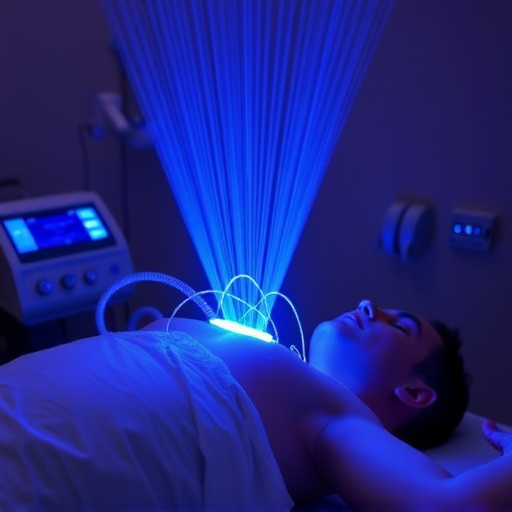
After a motor vehicle accident, understanding the role of physical therapy is crucial for effective motor vehicle accident care. Physical therapists specialize in injury rehabilitation, focusing on restoring function and improving quality of life for individuals who have suffered injuries in such incidents. They work with patients to address various issues that can arise, from acute pain management to long-term neck pain treatment and mobility challenges.
The therapeutic process involves a comprehensive assessment to determine the extent of the patient’s injuries and design a personalized treatment plan. This might include manual therapy techniques, exercise prescription, and education on injury prevention and self-care strategies. Unlike chiropractic treatment, which primarily focuses on adjusting the spine, physical therapy encompasses a broader range of interventions tailored to the unique needs of each patient, promoting holistic injury rehabilitation.
Assessment and Treatment Techniques for Injury Rehabilitation
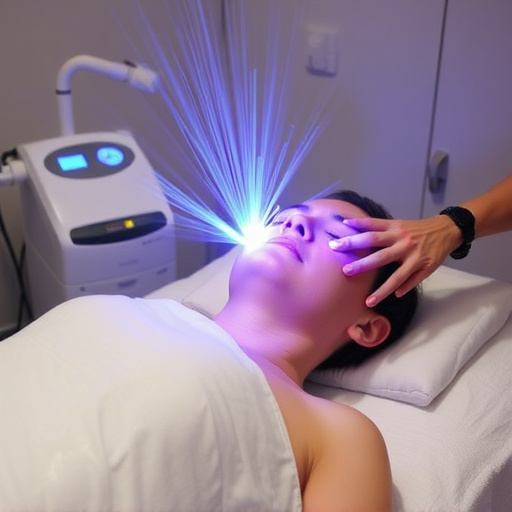
After a motor vehicle accident, thorough assessment and tailored rehabilitation strategies are vital for injury recovery. Physical therapists play a crucial role in evaluating patients, identifying specific injuries like herniated discs or pinched nerves that often occur in such incidents, and designing individualised treatment plans. This process involves manual therapy techniques, exercises for strength and flexibility, and pain management strategies to provide whiplash treatment and alleviate symptoms.
Treatment approaches may include hands-on manipulation to improve joint mobility, specialised stretching and strengthening routines, and guidance on functional activities to prevent further harm. The goal is not only to offer pinched nerve relief but also to restore patients’ mobility, reduce pain, and help them regain independence in their daily lives post-motor vehicle accident care.
The Impact of Early Intervention on Long-Term Recovery

Early intervention plays a pivotal role in the long-term recovery process for individuals involved in motor vehicle accidents. The immediate aftermath of such incidents often results in physical injuries, pain, and decreased mobility. Timely access to physical therapy services can significantly influence the patient’s journey towards full recovery. This intervention not only helps manage acute pain but also facilitates a structured program to restore strength, flexibility, and range of motion, addressing specific injuries sustained during the accident.
In motor vehicle accident care, early rehabilitation strategies are essential to prevent long-term complications and promote a faster return to daily activities. Physical therapists utilize various techniques, including manual therapy, exercise prescription, and innovative treatments like shockwave therapy, to cater to diverse patient needs. By implementing these strategies promptly, therapists can contribute to better functional outcomes and enhance overall quality of life for individuals recovering from traffic-related injuries, even those with complex sports injury treatment requirements.
Physical therapy plays a pivotal role in the recovery process for individuals affected by motor vehicle accidents. From understanding the unique needs of each patient to employing specialized assessment and treatment techniques, therapists facilitate injury rehabilitation and enhance long-term outcomes. Early intervention is key, as it can significantly impact a patient’s path to full recovery, ensuring they regain mobility, reduce pain, and restore functionality in their daily lives. By focusing on evidence-based practices, physical therapy becomes an indispensable component of motor vehicle accident care.




